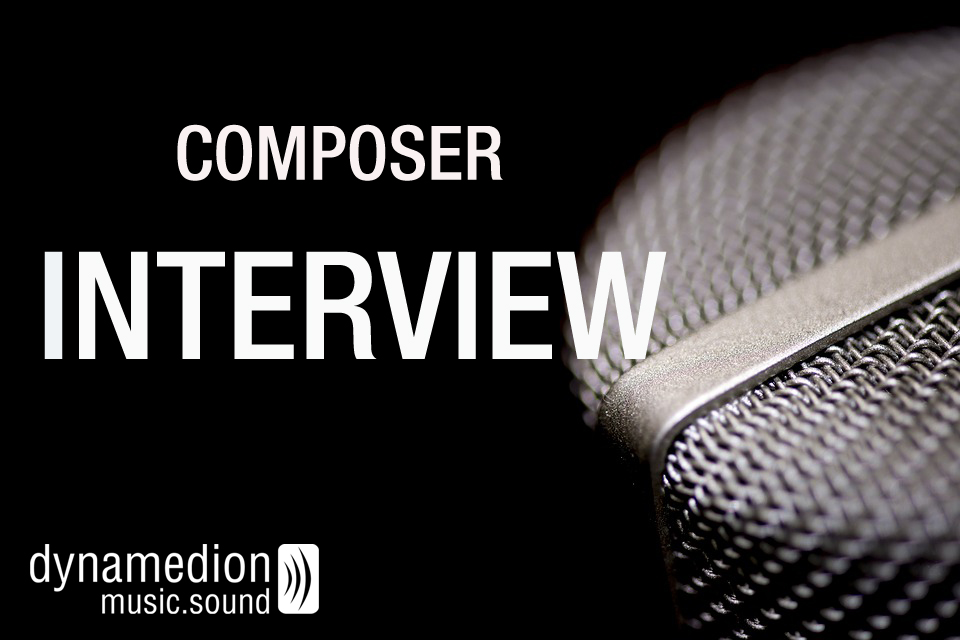We close our interview round with our lead composer Alex Röder. We had the opportunity to ask him our questions and learned more about his methods of his daily composer business.

To find the right beginning when you are sitting in front of a white sheet of paper is one of the biggest challenges of a composer’s work. If you find the right idea you have to keep your creativity running. Nowadays sample libraries can enrich composer’s life as they are a useful tool to create beautiful soundtracks. If you finish your track you are nearly at the end of your musical journey and you nearly attain the end you have in view. For many composers the whole trick is to convince their clients. What methods, tips and experiences Alex has to share with he tells us in this interview.

Alex Röder
(Anno Series, Angry Birds Toons, Hitman)
“Suddenly without any unrealistic expectations I start to play and think: ‘Hey that sounds not bad’.”
TO BE CREATIVE ON POINT IS NOT ALWAYS EASY. EVERYBODY KNOWS THE SITUATION WHEN YOU ARE SITTING IN FRONT OF A WHITE SHEET OF PAPER TRYING TO FIND THE RIGHT BEGINNING AND THE RIGHT IDEA. HAVE YOU EVER EXPERIENCED YOURSELF IN SUCH A SITUATION AND HOW DO YOU MANAGE TO FIND THE BEGINNING?
(Laughing) “Do I find myself in such a situation? Nearly every day. Then I sometimes go out and have a walk or I let myself be inspired by similar music, as is demanded for the project.”
IF YOU GOT THE CHANCE TO GIVE YOUR 15 YEARS YOUNGER SELF AN ADVICE – WHAT WOULD YOU SAY?
“I would myself not to buy specific sample libraries which I now know were bad investements. The saved money I could then invest in libraries for which currently the money is missing. It would be interesting to know what I would say to my 30 years younger me. “Learn to play guitar and not keyboard” for example.” (Laughs)
HOW DO YOU MANAGE TO FIND THE RIGHT WORKFLOW? DO YOU HAVE ANY RITUALS OR METHODS THAT HELP YOU TO GET INTO THE SPIRIT OF A THEME?
“As I already mentioned I like to hear music of the same genre to get into the right mood. Sometimes I rummage in some loops and phrases to extend my personal musical vocabulary and with a bit of luck you can find the dazzling idea that you can elaborate on. What happens in another musician’s head doesn’t happen in my head. With the help of the loops I bring a session musician into my studio and he will add some new facets to my composition.”
HOW CAN SAMPLE LIBRARIES SUPPORT YOU IN YOUR DAILY WORK? SURE, THEY ARE HELPFUL FOR TIME CRITICAL PROJECTS, BUT ARE THERE ANY OTHER BENEFITS?
“Well, first of all they are the only way to play instruments that I can’t play or aren’t available. So about 99% of the world’s instruments. Sample libraries are the foundation of my work.
Beyond the pure sample libraries with which I can play every melody there are loops and phrases that are fully recorded. This has the advantage that it sounds more realistic as there is so much happening between the notes that the pure sample libraries can’t reproduce.
The finished loops can compensate your own deficits. For example I am not super creative writing percussion notes. The loop libraries come in useful to me.”
HOW DO YOU RATE THE QUALITY OF SAMPLE LIBRARIES IN COMPARISON TO LIVE RECORDINGS?
“Depending on the quality of the musicians and the recording – the sound is fantastic and can be close to real musicians. Of course the most important factor is missing. It’s the interaction between the individual musicians and the reaction to my music. In the end the libraries are all crutches and with which you can get much further than without.”
WHAT DOES YOUR FIRST CONTACT WITH A NEW LIBRARY LOOK LIKE? WHAT IS IMPORTANT TO YOU AND WHAT IS NECESSARY FOR YOU WHILE TESTING THE NEW PRODUCT?
“For me it is very important that a spark emanates. First I don’t read the manual. The library has to be self-explanatory. Just as I press one or even more keys and start to play, something should happen in me that draws me into its spell. In the best case you can feel a certain satisfaction and happiness while working with the library. Unfortunately I often make the mistake to expect too much or to expect the wrong thing. Many times I throw the library into the corner (figuratively speaking) after the first test, because I am disappointed and expected more after listening to the demos. Anytime later I need something specific I unpack the library again. Suddenly without any unrealistic expectations I start to play and think: ‘Hey that doesn’t sound too bad’. And then the library finds the way into my compositions.”
HOW DO YOU JUDGE YOUR OWN COMPOSITION? WHICH FACTORS PLAY A ROLE?
“First of all I have to like what I hear. If no joy arises in me, no joy will arise by the audience. My track should fulfill a certain compositional quality and the sound should be great. In the best case everything sounds homogenous, the progression of the composition is coherent and nothing interrupts your flow while listening. The listener wants to listen to the track until the end.”
IS IT POSSIBLE THAT YOU RECOGNIZE THAT YOU FOLLOW THE WRONG DIRECTION WHILE COMPOSING? HOW DO YOU REACT?
“Never! (Laughs) Okay, all joking aside: This happens almost every time in the beginning. I am a person, who throws over everything out and starts with a new idea. Maybe sometimes too early as it could be a good composition in the continuing progression. Sometimes it also happens that I return to my first idea after many detours and many new starts. The only important thing is that my own composition thrills me and at no time I lose the passion and the belief in my track. And if so, it isn’t the right thing. Then I have to necessarily clench my teeth and start at the beginning. If I am not convinced of the composition no customer of the world will jump out of their seat.”
HOW DO YOU HANDLE CUSTOMER’S CRITIC IF HE/SHE HAS GOT ANOTHER VIEW ON THE RESULT AS YOU HAVE?
“The customer is the boss. I have to get in line, even when it’s difficult. The customer has got the better overview of the project and also if I write the best track in the world and everyone likes it – if it doesn’t fit to the project I have to write something different. The track will find another place if it is as strong as I think it is. At least a composition should please the customer’s taste as it is his project and not mine. What point does it have if the customer plays the game or watches the movie and every time my track is playing he gets annoyed because he doesn’t like it? The customer should back the project and often there are many musical possibilities and not just one. Mostly a track gained through the customer’s feedback and only rarely a track has become worse. You have to live with that and as long as I can write my name under the composition without a second thought everything is fine.” (Laughing)
•
Alex Röder
Hope you enjoyed reading the interviews. Our composers want to stand by your side in implementation of your projects and support you with their experience. We hope we could give you some helpful tips and tricks to optimize your personal workflow and to give you more confidence to extend your personal music horizon. We try our best to support you in all concerns!
See you soon,
your Dynamedion-Team
